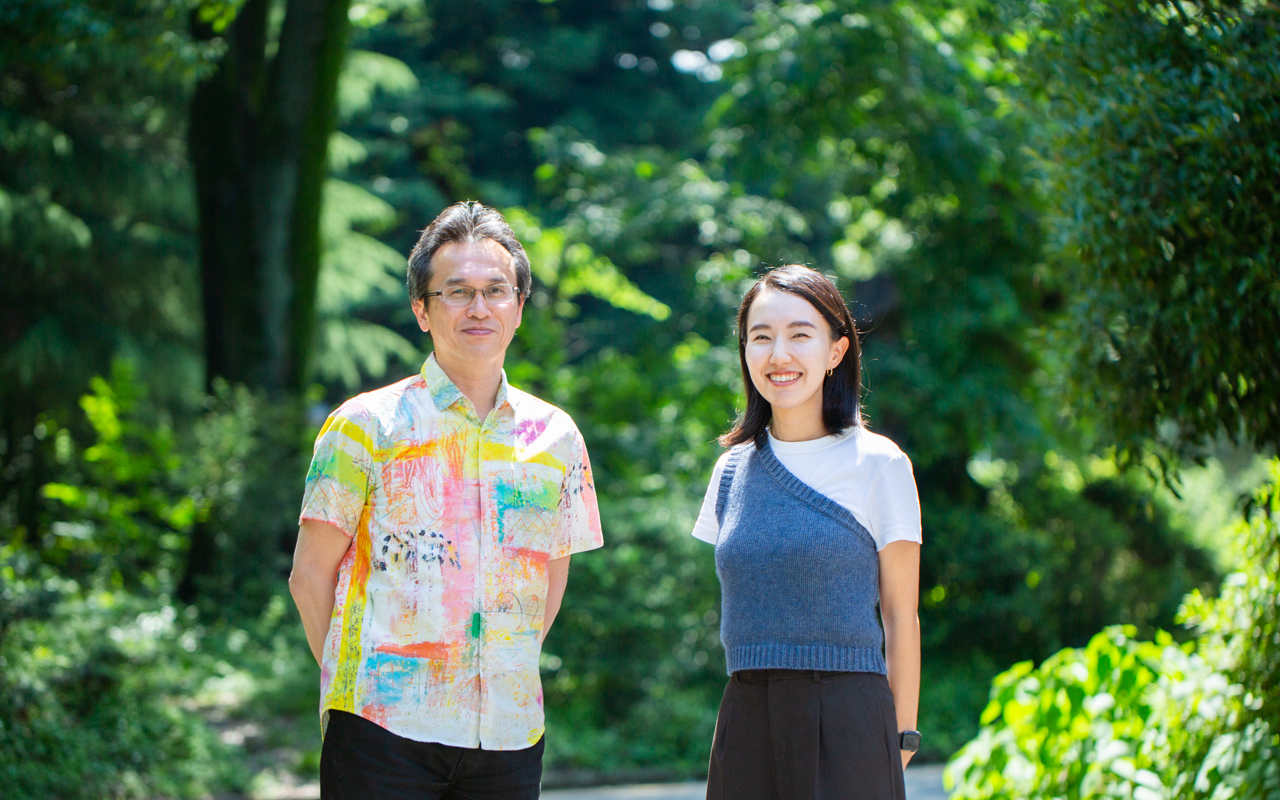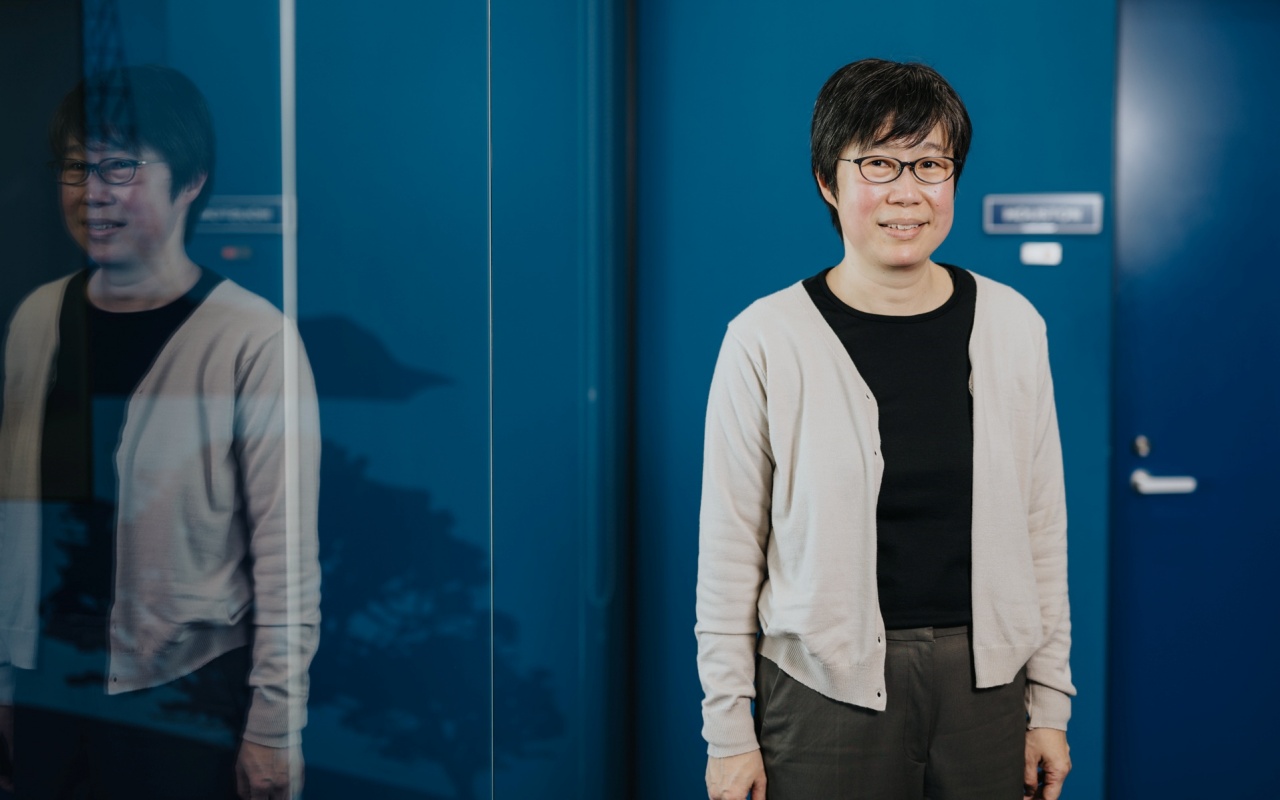Around the World, Companies Are Failing to Make People Happy
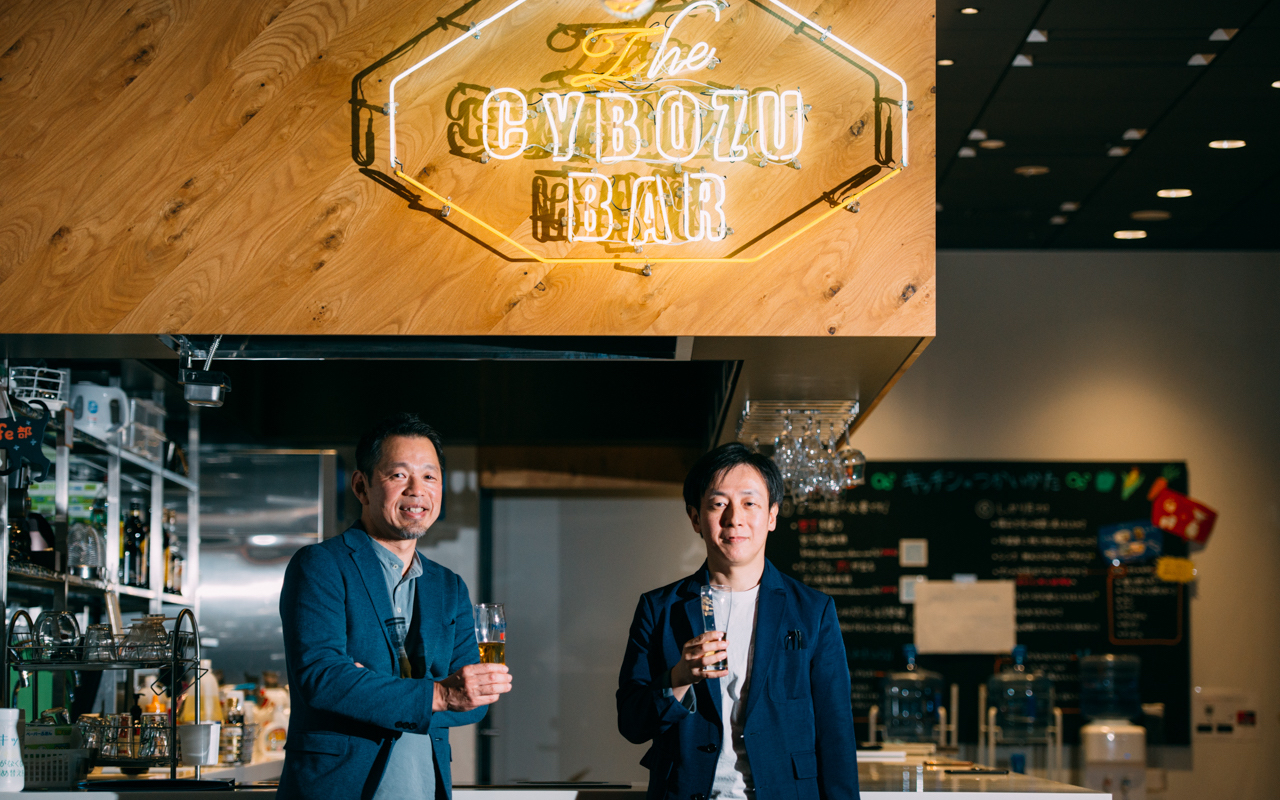
This was the question that Alex—the new member of the Cybozu editing team in charge of overseas promotion—had been asking himself since he was hired.
To find an answer, Alex invited Cybozu founder and CEO Yoshihisa Aono and company president Osamu Yamada to the Cybozu Bar for a chat. To smooth things over, Alex did the bartending.
Things kicked off with a toast. Then, they dove straight into it: the reason Cybozu made a second attempt at the U.S. market.
It's online, we can sell it anywhere!
![]()
![]()
*Toru Takasuka and Shinya Hata
![]()
Looking back it seems crazy. We hadn't even started selling the product in Japan. Nevertheless, we decided to ask our friend's Australian husband to translate the product content into English and make us a homepage.![]()
Even back then, we wanted to expand overseas.
![]()
The first time we went to America, it ended in disaster.
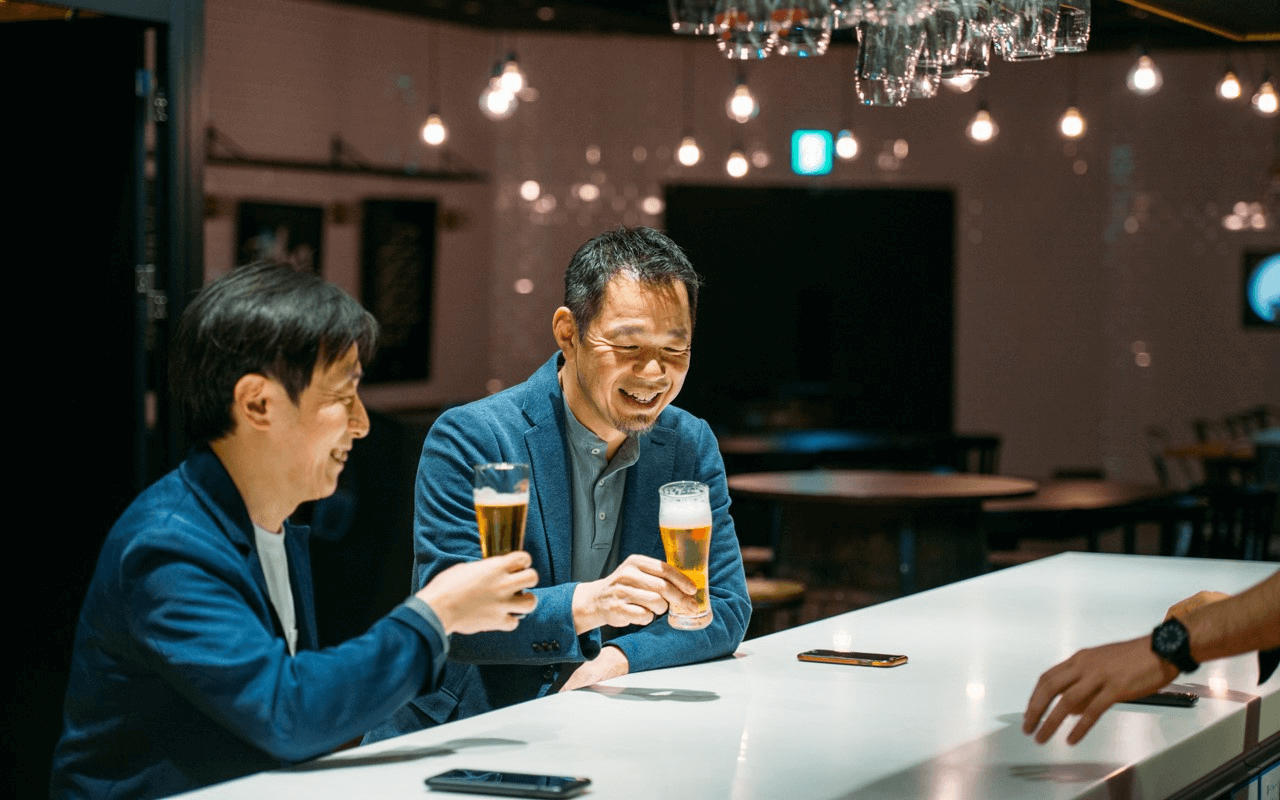
Cybozu CEO Yoshihisa Aono and president Osamu Yamada chatting at the Cybozu Bar. Cheers!
![]()
![]()
![]()
![]()
Despite having no experience with localization, local teams would be left to fend for themselves. Even when they asked headquarters for help, nobody would really understand what they were going through. Headquarters would respond with: "Why do you need so much money?"![]()
![]()
![]()
We dove in headfirst with no prior research
![]()
It's not like we had a lot of resources in Japan that we could use to continuously invest in the U.S. market. We were playing the game on impossible mode.![]()
![]()
When we'd ask clients why they weren't interested, they'd ask us: "Why would I want to show my schedule to my boss? If my boss trusts me, there's no reason for me to share!" There was also no need for a room booking function. Back then, everyone working in large U.S. companies had their own office.![]()
![]()
For example, pretty much every PC has an Intel CPU. I became convinced that we needed a similar strategy. We could leave the overall products to other vendors and instead focus on building a support layer for those products.![]()
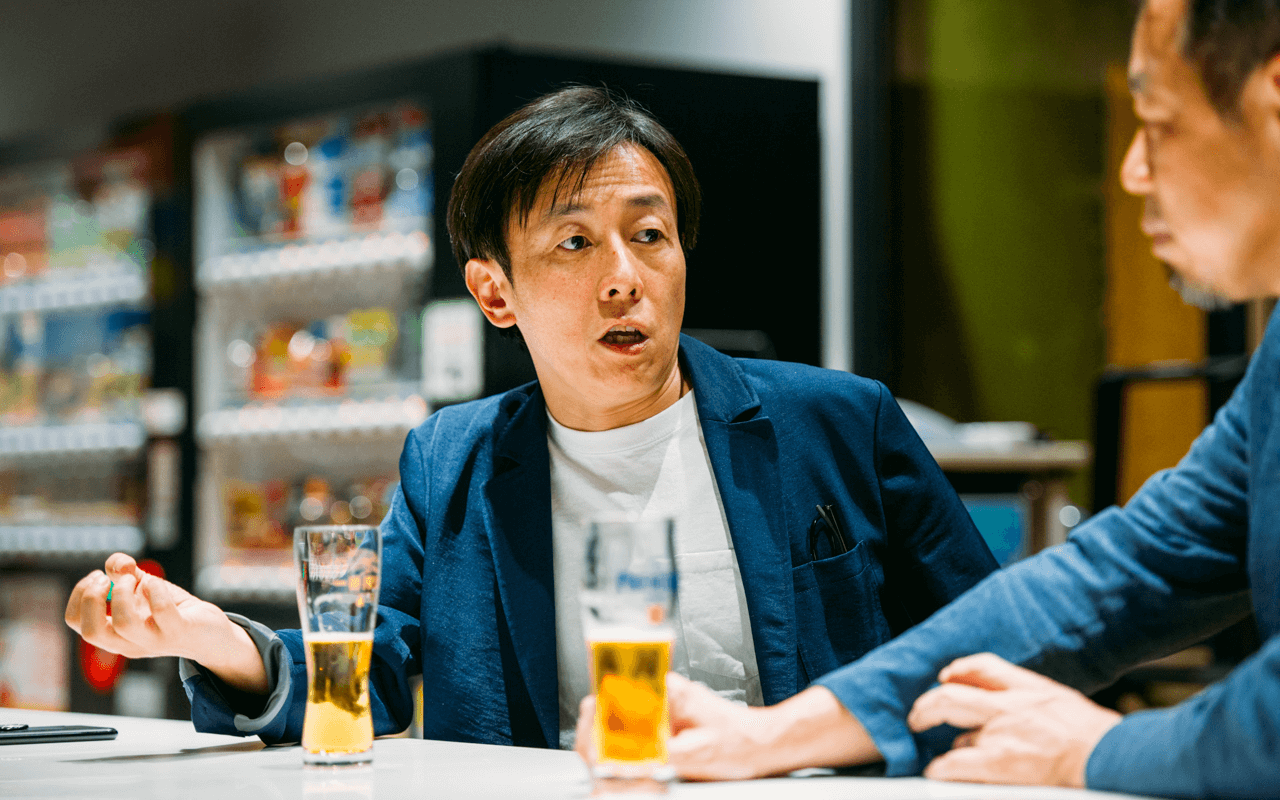
Yoshihisa Aono was born in 1971. After graduating from the Information Systems Engineering Division of the School of Engineering of Osaka University, he joined Matsushita Denkou (currently Panasonic). In August 1997 he co-founded Cybozu, and in April 2005 he was appointed CEO. Yoshihisa spearheaded the company's workstyle reform, as well as its transition toward cloud-based products in 2011. He is the author of several books on teamwork and happiness at work.
![]()
I remember being surprised by one family-run package software vendor that focused exclusively on helping companies rent limousines.![]()
![]()
The U.S. market is so big, it's constantly attracting new players. In order to be able to compete, we had to find somewhere to put ourselves.![]()
![]()
*GAFA refers to the world's four largest tech companies: Google, Apple, Facebook and Amazon.
![]()
On our second try, we had already expanded the Japanese side of the business, Osamu managed to raise approx. $10 million for our public listing, and we were making enough profit in Japan to have funds we could dedicate to investment. In order to provide a service that wasn't exclusive to a single culture, we emulated Microsoft and started doing research on how we could compartmentalize in order to be the most competitive.![]()
The CEO had young children, so the company president went instead
![]()
Another thing is that the most advanced software companies in the world compete in the U.S. If we could achieve results there, we could develop into a truly global company.![]()
That's why I suggested that if we really want to succeed in the U.S. market, we need to be committed to the point of moving our headquarters to the U.S.![]()
![]()
![]()
![]()
![]()
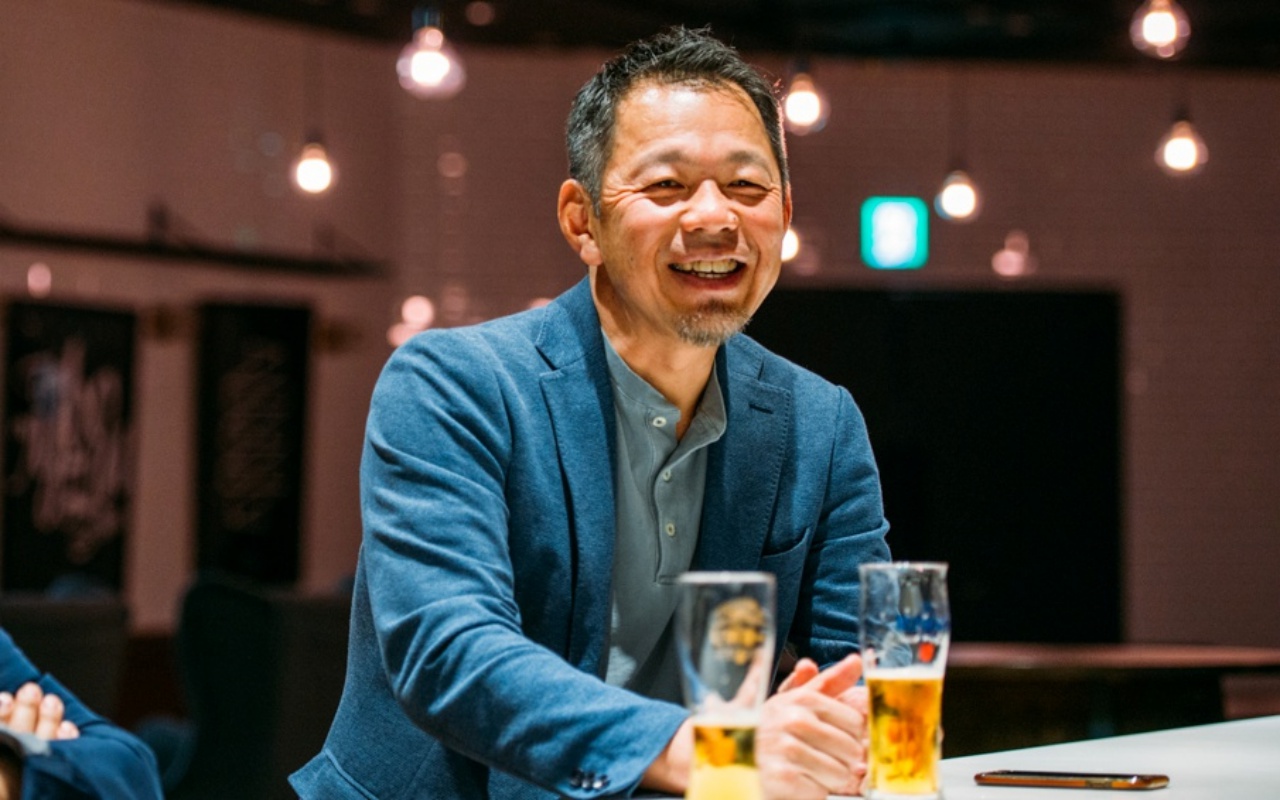
Osamu Yamada is the president of Cybozu and CEO of its U.S. affiliate, Kintone Corporation. Osamu began his career in 1992 working for the Industrial Bank of Japan. In 2000 he joined Cybozu, where he became in charge of the department of financial affairs, human resources and general affairs. He has been involved in building the human resource system and training courses that both companies use today. In 2014, as part of the company's plan for global expansion, he moved to San Francisco, where he helped establish the affiliate's legal personality. He still resides in San Francisco.
We had to send Osamu himself, so that he could take the time to build a team that matched the Cybozu spirit.![]()
It couldn't be me going to the U.S. as a manager. It had to be as if Yoshihisa himself had committed himself to going to the U.S., otherwise we'd never move forward. It was important for me to be able to make decisions the same way Yoshihisa would.![]()
![]()
When asked if headquarters had given the affiliate any authority, I could reply: "Why do you think I came all the way here?"![]()
Why aren't American workers happier?
![]()
The U.S. is very culturally diverse, to the point where it's become normal for different cultures and ethnicities to mix. However, in the business world the merits of diversity tend to be overlooked. Instead, the culture is geared toward getting talented people together and making them grow the company and raise stock value. That talent will eventually begin to wonder: "How much am I willing to do for money? Shouldn't I be trying to improve my life instead?" This soul searching is currently very present in the U.S.![]()
![]()
![]()
![]()
However, people who benefit from these reforms are now beginning to realize that they still aren't feeling happy at work.![]()

Alexander Steullet joined the Cybozu branding team in November 2018. He graduated in 2012 from the University of Nottingham with an LLM in Human Rights Law. Alex is a Swiss national.
![]()
*According to Frederic Laloux's Reinventing Organizations, an "orange" style organization is a heavily hierarchical rewards-based corporate organizational structure.
In existing companies structures, a few individuals will have the authority to control the flow of information in a way that's dictated by the results-driven model. Kintone was designed to achieve the complete opposite: for information to be made readily available for everyone. That's why I think our culture and product are linked. If we can spread Cybozu's cultural model, interest in Kintone will naturally grow.![]()
Companies have stopped trying to make workers happy
However, over the years, the situation has reversed itself. Instead of companies serving people, it's people who serve Kaisha-san. In the U.S. the situation is a bit different. Companies have become a tool for CEOs to exert control over people and money. That's why so many workers are failing to find happiness in their jobs.![]()
Yet nowadays, whether in the U.S. or Japan, companies have stopped trying to make people happy. Which made me think we should start reforming our workplaces by simply restating that companies exist to make people happy. By doing so, workers become aware that their company is there for them.
![]()
In Japan, diversity is still mostly thought of as differences between men and women. In the U.S. it's more common to think of diversity in terms of ethnicity, religion, sexual orientation and gender identity. That's why it's so important to put forward this message of "100 people, 100 ways." All people should be allowed to achieve happiness, whatever their individual traits.![]()
Writer

Alex Steullet
Alex is the editor in chief of Kintopia and part of the corporate branding department at Cybozu. He holds an LLM in Human Rights Law from the University of Nottingham and previously worked for the Swiss government.

